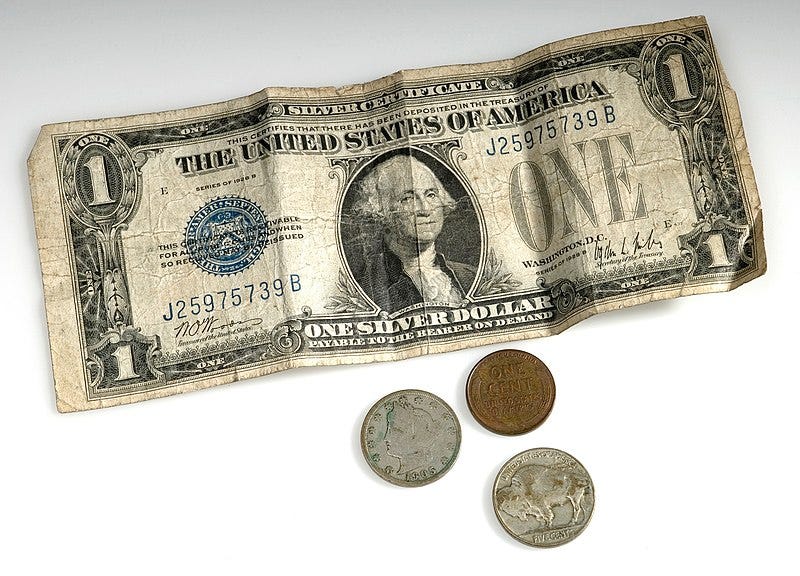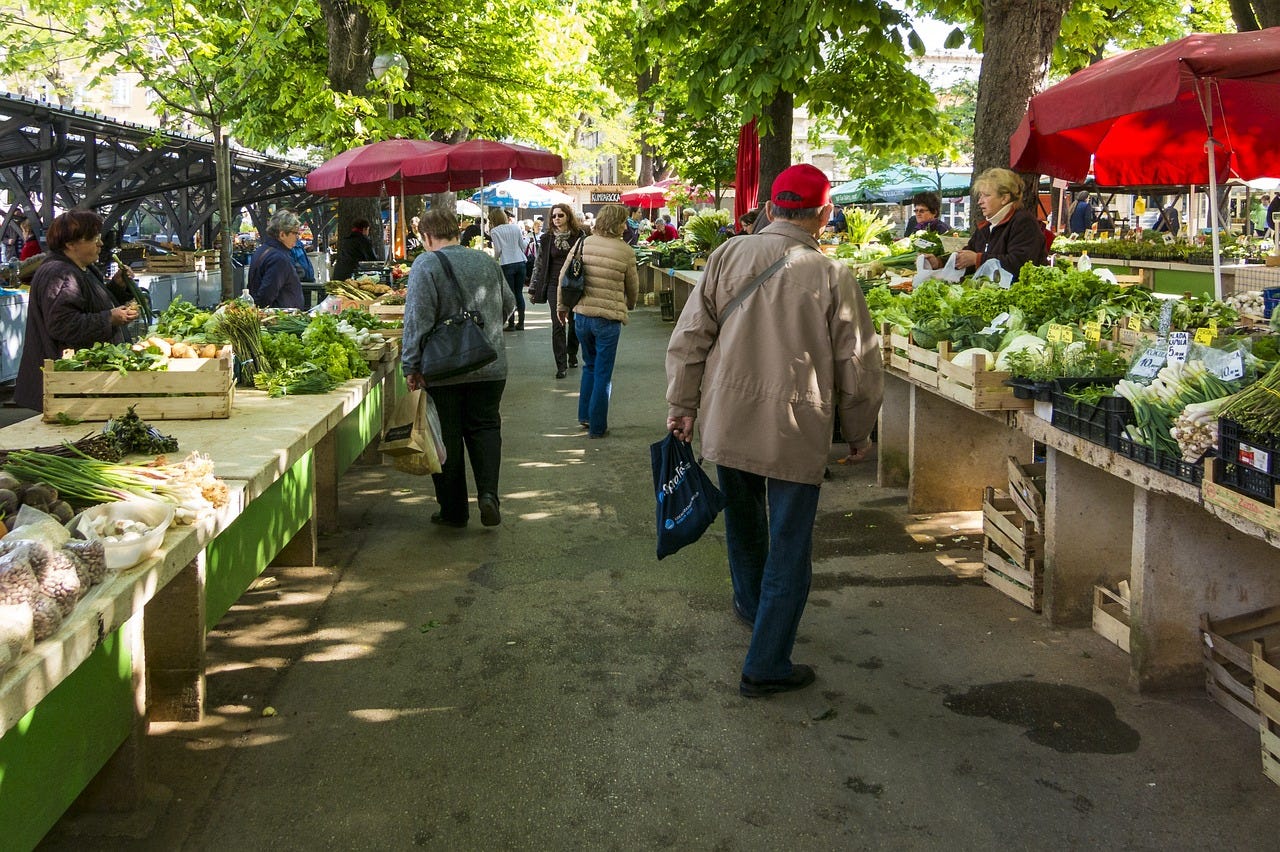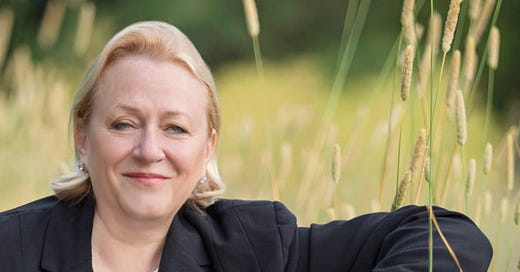Thought Leader Catherine Austin Fitts on Financial Freedom and Why RFK Jr. Gets It
By Nikos Biggs-Chiropolos, The Kennedy Beacon
“There is no economy if you poison the next generations. So the notion that the stock market is going up from poisoning the next generations — that’s a win-lose relationship between the economy and real wealth, so I see Bobby [Kennedy] as somebody who’s constantly trying to bring us back into balance between financial equity and real wealth and getting it going in a win-win direction, and that is the only way out of this mess.”
— Catherine Austin Fitts
By Nikos Biggs-Chiropolos, The Kennedy Beacon
Financial transaction freedom is the grease for the gears of a healthy economy. In the same way that individuals have free choice in a strong democracy, consumers in a strong society should freely choose where and how to spend their money. Spending money facilitates a robust economy, which builds wealth and provides resources to help solve general societal problems.
Yet present-day leaders have taken steps to curb financial freedom, attempting to control how individuals can spend their money in ways that benefit the elite. The COVID-19 lockdowns provide a glaring example of this disturbing overreach. As Victoria Taft reports in the Desert Review, “While bureaucrats gave Walmart, Costco, Lowe’s, and other big-box stores ‘essential’ status, allowing them to stay open during the COVID pandemic, 38.9% of small businesses, the providers of most of the country’s jobs, were forced to close.” Such policies enriched elites and C-suite executives, but not small business owners and individuals whose financial transaction freedom was brutally curtailed.
Catherine Austin Fitts, an investment banker and former Assistant Secretary of Housing and Federal Housing Commissioner at the United States Department of Housing and Urban Development (HUD), is a thought leader in financial freedom. Fitts explained to the Beacon why financial transaction freedom is vitally important and why Robert F. Kennedy Jr. is the best presidential candidate to promote this critical objective in 2024 and beyond.
A Status Quo that Favors Rule-Makers Getting Richer
For Fitts, financial transaction freedom leads to wealth and a healthy economy. And even while a boom-and-bust US economy is in its growth stage (in terms of GDP and Dow Jones average; not for all American families), it constrains the ways people can spend their money. Fitts likens economic control to slavery, saying that shaping people’s economic opportunity and creating a population dependent on the government allows intense micromanagement and loss of individual choice on issues including food policy and health policy, as well as day-to-day individual financial transactions.
The COVID-19 era initiated draconian constraints. Unprecedented government-mandated lockdowns around the world restricted what people could and could not buy, where they were permitted to go, and when, if at all, they were allowed to leave their own homes. This period facilitated the largest upward-wealth transfer in modern history. As Tami Luhby reports in CNN in April 2022, the pandemic “spawned many billionaires, including seven of the 10 world’s richest people, such as Tesla's Elon Musk, Amazon’s Jeff Bezos and Microsoft’s Bill Gates. These men increased their wealth by $436 billion to $934 billion over the past two years, after adjusting for inflation.” While executives of multinational corporate entities, especially in tech, profited from the majority of the world’s population being stuck inside their homes and sitting in front of screens, small businesses and individuals faced widespread bankruptcy and ruin.

Concerningly, the financial elites seem to be using the COVID-19 framework as a global economic planning model. Climate change is often cited as a reason to control people’s economic freedom, for example by limiting how much they can travel or by requiring individuals to possess a “carbon passport.” As Ross Bennett-Cook reports in CNN, “The idea of a carbon passport centers on each traveler being assigned a yearly carbon allowance that they cannot exceed. These allowances can then ‘ration’ travel.”
Even though carbon passports are not a reality (yet), digital transactions already expose consumers to surveillance and constraints, including by governments. In March 2022, as John Stossel reports in Reason, a chilling example involved truckers in Canada who protested COVID-19 rules: ”In Canada, protesting truckers resisted pressure from police and politicians for weeks,” Stossel writes. “But once Trudeau froze their money, that was the beginning of the end of their protest.”

Kennedy has echoed Fitts on the importance of financial transaction freedom as the keynote speaker at Bitcoin 2023 conference, when discussing the 2022 Canadian trucker protests. He has also likened financial transaction freedom to free speech.
“It occurred to me at that point that transactional freedom was as critical a human right as the First Amendment guarantee of freedom of expression,” Kennedy said. “Because, if the government has the capacity to shut down your bank account and starve you to death and get you thrown out of your home and make it so you can’t feed your children, it has the capacity to make slaves of all of us. If there’s a guarantee of free expression but the government then can punish you for expressing yourself by robbing you of your bank account, what’s the purpose of the First Amendment?”
Kennedy also differentiates himself from other presidential candidates through his willingness to discuss the importance of individual financial freedom. In an interview with Mark Goodwin of Bitcoin Magazine, he explains that it became clear after the Canadian trucker protests that “we need a freedom currency and one that can’t be controlled by the government,” which can include Bitcoin when cash is not viable due to the crypto currency’s independence from government intervention.
And while the trucker protests showed how governments were able to collaborate with the traditional banking sector to intervene into private digital bank accounts of targeted individuals, Fitts has noted that central bank digital currencies (CBDCs) are an even bigger threat to freedom. CBDCs, the subject of a recent article by Adam Garrie in the Beacon, have been called a “digital prison” by Fitts. The International Monetary Fund (IMF) deputy managing director Bo Li has described a vision of a CBDC world wherein governments allow “targeted programs” from government agencies to decide “what kind of use this money can be utilized” [sic]. While such a system can benefit those who design it by giving them tremendous control over future economic transactions, Fitts believes that such control stifles the overall economy by restricting individuals from creating wealth through transactional freedom.
Instead of increasing economic wealth through the regulation and control of people, Fitts advocates for getting back to “what’s real” and building up from the individual level. She believes the foundation of a healthy economy is a bottom-up approach that enables individual consumers to make their own decisions and build wealth, and freely engage in economic activity. And a flourishing economy also requires a thriving population, which starts with healthy children.
The Popsicle Index and Community Well-Being
Fitts pioneered the term “Popsicle Index,” which she says measures a community’s confidence in its well-being. The Popsicle Index is the percentage of people in a community who believe that a child can leave home alone, go to the nearest place to buy a popsicle, and come back home safely. Fitts, born in 1950, observes that when she was young the Popsicle Index was very high and today it is much lower. In the same time frame, the Dow Jones Index has risen from a closing value of 235 in 1950 to 33,147 by the end of 2022, an increase of over 14,000%. It leads to the question: Are people who profit the most from the success in the stock market at odds with creating communities that would rank high on the Popsicle Index? And how can this seeming conflict be resolved?
Fitts believes that a healthy economy and healthy communities are the result of individuals who have the financial freedom to prosper, rather than being subsidized by government programs that promote consumer behaviors designed to align with the agendas and objectives of the elite, and which also indirectly but inevitably lower the Popsicle Index.
Cash: The Best Solution for Economic Freedom
Fitts emphasizes the importance of a cash economy, and promotes using cash as much as possible. Not only does cash promote greater privacy, but it also avoids incurring transaction fees, meaning that many consumers and businesses (especially small businesses) often prefer cash to digital payments. Cash transactions help boost the Popsicle Index, and are also free from surveillance and spending controls.

Fitts explained the advantages of using cash, saying that it is an easier way to manage your individual spending, but also creates economic and personal opportunities due to the nature of face-to-face transactions. Real human interactions, according to Fitts, are an important part of the foundation of a healthy economy since people not only flourish by interacting, but also can explore and develop business opportunities through these interactions.
Another example of the importance of cash is the reality of natural disasters. When unpredictable events wipe out infrastructure and power grids, digital transactions can become impossible. Despite this fact, the cashless concept continues to be tested to varying degrees around the world, as reported by the Independent. But Fitts astutely points out in the Solari Report that cash becomes necessary to basic survival in a power outage. Cash is therefore still necessary for economic freedom and resilience.
Human Health Is the Foundation of Economic Health
In addition to cash transactions, a healthy population is an essential requirement for a strong Popsicle Index and a vibrant economy. “In my opinion, we’re poisoning the next generations,” Fitts explained, referring to environmental pollution and human health conditions that result from an extractive economy dominated by industries like Big Oil and Big Pharma, rather than focusing on the well-being of people and their communities. “There is no economy if you poison the next generations. So the notion that the stock market is going up from poisoning the next generations — that’s a win-lose relationship between the economy and real wealth, so I see Bobby [Kennedy] as somebody who’s constantly trying to bring us back into balance between financial equity and real wealth and getting it going in a win-win direction, and that is the only way out of this mess.”

Fitts provided three reasons why she believes that Kennedy promotes financial freedom through his platform.
First, Kennedy focuses on “what’s real,” which can be explained as day-to-day individual financial transactions on a micro level that compound to create an entire economic system. It is the inverse of the financial control methods of surveillance and CBDCs advocated by the World Economic Forum (WEF).
Second, he wants to make the economy truly productive by focusing on human productivity. As Fitts explained, healthy children are Kennedy’s lifelong cause and are ultimately the source of creating a truly healthy economy and real wealth. Inversely, a society that produces unhealthy children deteriorates at a macro level and destroys everything that real wealth creates.
Third, Kennedy has demonstrated an ability to dig in to understand science, as he has done with his activism, and she hopes that going forward he will do the same with finance. Fitts believes that Kennedy is able to tackle and grasp the root causes of society’s biggest problems and advocate for policies that create a wellness society and a better future.
Returning to the connection between financial freedom and good governance, Fitts recognizes that there are certain problems that cannot be solved on their own. Therefore, great wealth is needed to create real solutions for some of the problems that society faces today.
Capital investment and human interactions create a healthy economy and society – for example a fruit stand on the street improves the area’s safety, especially if it stays open late, and also creates community ties through face-to-face interactions. Similarly, community banks can offer loans to small businesses and better fill gaps in the local landscape than centralized, digital models that look only at numbers. And the accumulating capital can be reinvested to solve community problems, such as environmental pollution and a chronically unhealthy population, rather than directed to faraway boardrooms to enrich C-suite executives.
These priorities are central to Kennedy’s platform, which seeks to address the heart of society’s current woes by promoting both health and wealth, leading to thriving, safe, vibrant communities and a high Popsicle Index. And who wouldn’t want these priorities for their children?









The suggestions in this article for creation of a bottom-up consumer-oriented economy are fine as far as they go, and I agree that cash transactions are a sign of grassroots economic health. At the same time, however, overall control of the money supply must be taken away from the financial sector overseen by the privately-owned and operated Federal Reserve. Our battle cry should be END THE FED. I explain how to do this and what we need to replace the Fed's self-serving system in my new book "Our Country Then and Now." Thanks, Richard C. Cook
https://www.claritypress.com/product/our-country-then-and-now/
Rare Intelligence! Popsicle Index so true.. Completely agree.. RFK Jr has got it goin on, period!